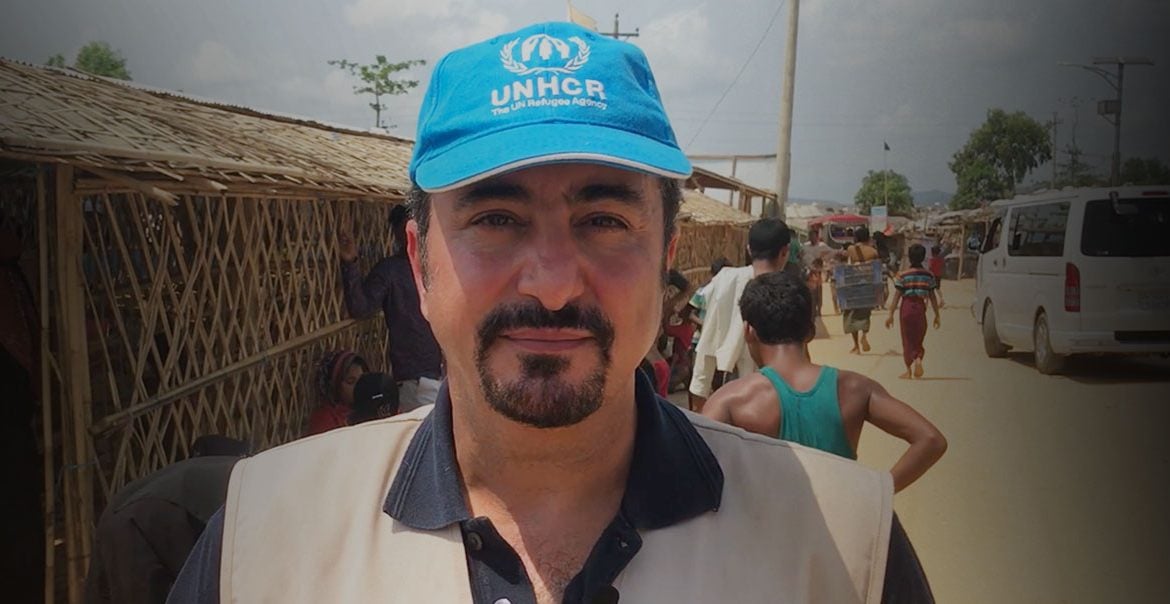Dear brothers and sisters,
My name is Firas Khatib. I worked with UNHCR for five years inside Syria and now I’m based in Bangladesh supporting our response to the Rohingya refugee crisis. I want to reflect here on our collective efforts to help refugees and to express my thoughts on what it means when war forces someone to leave everything behind.
In Syria today, there are over 6 million internally displaced people, and their lives move between difficult and tragic. Many live in collective shelters, schools or unfinished buildings, with nothing to protect them from snow, cold and even hot temperatures other than flimsy plastic sheets.
Before the crisis, these Syrian families had normal lives, owned houses, maybe gardens – they went for picnics on the weekends, traveled for holidays, and their tables were never short of delicious food.
The contrast between then and now is heartbreaking: I have seen people cooking in cellars, old garages, and inside their tents. There is one family that I will never forget.
Myriam is a 72-year-old grandmother and the sole carer for her four grandchildren after their parents were tragically killed.
When their family home in Aleppo was destroyed by shelling, they fled to “Karajat” camp in Tartous. Before the camp existed, this was an empty land where companies parked their heavy duty machines and trucks.
For Myriam and the kids, almost overnight, everything became a struggle, and their future fell into total uncertainty. When I met them, grief and misery was clear on their faces; it was obvious that they’re not familiar with this place and that they miss their parents.
“I’m not sure how many years I still have to live, and to whom I’ll leave those kids.” Myriam told me. “I’ll take care of them as long as I’m alive, and I leave the rest to God.”
After this, I made sure that whenever I visited Tartous, I checked on them. Six months after our first meeting, their situation seemed to be a little bit different as the children were attending school, and after that they started receiving psychosocial support from UNHCR, and I could see their eyes sparkling for the first time.
I wonder how they are today, but I hope that God keeps this grandmother with her grandchildren so that they grow up with love and care. It’s so hard for children to lose their parents but I believe that they won’t find a better care than that of their family who can give them love, kindness and the comfort they lost.
Now I am in Bangladesh and continue to be moved by many stories, but I face one tragedy: Armed conflict turns the lives of innocent people upside down, scatters families, and deprives children from their parents.
Together, we will work towards a better future.
Firas Al-Khatib
